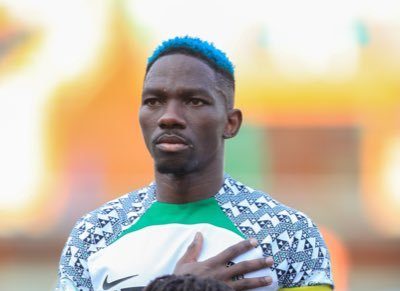Super Eagles defender Kenneth Omeruo has expressed strong criticism towards the Confederation of African Football (CAF) for their decision to allow Libya to host their Africa Cup of Nations (AFCON) qualifiers. Omeruo deems this move “a wrong decision” due to the serious safety concerns prevalent in the country. During an interview with Arise TV, he recounted his own alarming experiences with Nigeria’s U-20 team, where he found himself in a similarly dangerous situation without prior awareness of the ongoing conflicts in the region. Omeruo highlighted the surreal circumstances when, after a game, they learned through news broadcasts about riots occurring in Benghazi, which underscored the risks athletes face in volatile environments.
The defender articulated his surprise that CAF permitted matches to take place in Libya given the nation’s current instability. He remarked on the poor judgment of allowing home games in a country where safety is not guaranteed, emphasizing that Libya still has not achieved peace. Omeruo’s statements bring to light significant concerns regarding the governance and decisions made by sporting authorities like CAF when it comes to player safety and the overall environment in which they are expected to compete.
Omeruo’s observations align with a broader sentiment among players, including notable figures such as Victor and Awazim, who have expressed fears regarding their safety amid uncertain situations. The risks become even more pronounced when one considers logistical challenges like flight diversions and access to secure travel routes. He shared a specific instance recalling the danger involved with flight changes, emphasizing his relief that the team was able to return safely after such an ordeal. His statements resonate deeply with the reality many athletes face when thrust into unpredictable and perilous conditions away from home.
The emphasis on player welfare is a recurring theme in Omeruo’s discourse. He insists that athletes should be safeguarded against unexpected dangers, especially in youth tournaments where they may not be as equipped or aware of potential hazards. Looking at the structure of travel arrangements for teams, he insists that proactive measures must be adopted. This includes delegating individuals to assess conditions before games, thereby ensuring adequate preparations and minimizing risks. His call for heightened awareness and foresight reflects a growing consensus in the sports community about the importance of comprehensive risk management strategies in athletic scheduling.
Additionally, Omeruo emphasized the importance of having a representative travel to a location ahead of the players. He believes that such a move could enhance the safety and organization of the entire travel experience, allowing the team to gather critical information about the political and social climate of the area. By sending someone in advance, teams can potentially mitigate the dangers that might arise when traveling to locations experiencing unrest or conflict. This proactive approach could potentially prevent scenarios where flights have to be diverted unexpectedly, as was the case with Nigeria’s squad, which faced significant delays and inconveniences due to such unpredictability.
The recent experience of the Super Eagles serves as a concerning example of the challenges teams may face when navigating politically sensitive regions. Just days before their AFCON qualifier, the Nigerian delegation found themselves stranded at Abraq International Airport for over sixteen hours due to their flight’s diversion to a small airport typically used for Hajj operations. This incident not only highlights logistical issues but also raises critical questions about the responsibility of sporting authorities in ensuring the safety of their players. As the sporting world shifts its focus to prioritizing player welfare, the lessons learned from this episode could prove invaluable in shaping future decisions regarding the selection of host nations for important tournaments.














